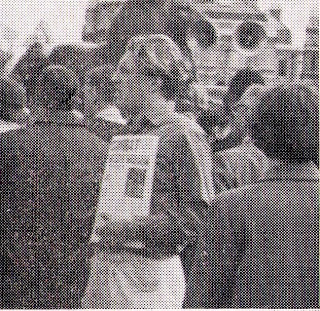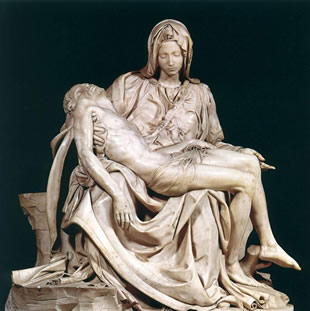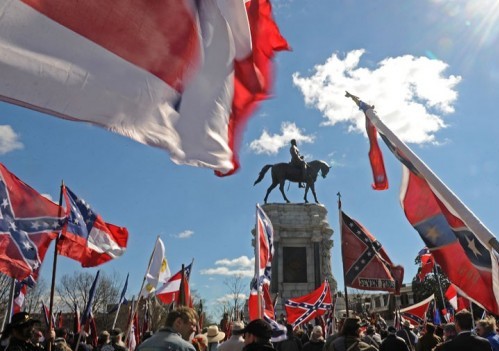|
Bill Baillie Purveying it Right Back: Critical Reflections on Democracy & Capitalism  Peter Ling in Trafalgar Sq. Bill Baillie, regarding democracy, European Outlook, #47:
“Serendipity” - The occurrence and development of events by chance in a happy or beneficial way.
An old copy of Colin Jordan’s magazine Gothic Ripples caught my eye. It was from February 1988 and posted by www.jrbooksonline.com
“Peter Ling, a life-long National Socialist, member of the British NSM, died 16/10/87.”
I knew Peter Ling in the old days. He is pictured selling Combat at a meeting of the old BNP in Trafalgar Square. He was an accomplished writer, speaker and street fighter. I guessed that he was dead but I never knew the details. His powerful essay, Authoritarianism v Democracy, originally published in Combat in 1959, was reprinted in European Outlook # 5, May 2014. Here is an extract:
“But the most telling and final indictment of democracy is that in time of great human stress and endeavour it rejects and abandons its philosophical basis. In time of war when the ruling interests are really threatened, democratic values go overboard and the erstwhile democracy gears itself immediately to an authoritarian form of government. Even in time of peace democracy does not attempt to organize its armed forces “democratically” or to sail its great ships across the oceans of the world without the strong hand of authority and responsibility at the helm.
What an indictment of democracy that it can only weld its subjects into a single great united whole for the purpose of destruction! That its fundamental wealth and assets, which only too often represent the ill-rewarded toil of generation of its loyal citizens can be squandered overnight in order to procure fantastic financial sums for expenditure upon war and death, but when it comes to building something great for its own people – as a whole that is – in time of peace, the will and the credit dry up, and “Freedom” reigns once more; freedom for the poor to get out of the slums if they can and freedom for the financier to squat in his banking house and receive the lickspittle homage of parliamentarians of all parties.”
With regard to capitalism, Bill Baillie writes in the same edition, European Outlook, #47:
Capitalism relies on unmoored physical movement, tenuous interpersonal connections, and sensual whim for its sustenance and has thus both facilitated the historical march of irony and provided a system of nostalgia to act as an opiate by which to provide temporary relief from the agony of meaninglessness. By disseminating palliative symbols and profiting on access to them, this system thrives and immobilizes white populations by reducing their understanding of history to false inevitabilities, superficialities, platitudes, and decontextualized assertions. Our histories, both personal and collective, become a collection of sounds, images, and texts to be bought, sold, and traded based on the emotional appeal of any particular example. There is no need for order, no need for context, and no need for contemplation. All that is required is a desire for temporary escape from the conditions maintained by capitalism.
 Inherent in the practice of nostalgia is a search for meaning coupled with the unavoidable psychological tendency to mark the passage of time. These are neither unhealthy nor unnatural impulses on their own but under capitalism, as connections to “blood and soil” weaken, they take on a greater significance and work in concert to manufacture a toxic individual and collective mental state. Rather than producing minds that are energetically oriented towards the future, they produce minds mired in the past, emotionally dependent on the avoidance of reality, trapped by delusions of resurrection and romance. Whole populations of people are reduced to immobility and blind acceptance of whichever way the sociopolitical winds are blowing by dwelling on what are, somewhat paradoxically, calming images of defeat. The system of nostalgia preys on these vulnerabilities. Parasites will always take advantage of easily manipulated biological drives and psychological urges.
It is important, however, to make the distinction between historical memory and nostalgia. Historical memory — so crucial to all nationalisms — is an understanding of history as a part of a living, vital, forward-moving process. It is the integration of the essence of past collective experience into the present. It is the use of history to more deeply understand those forces which act upon groups in the present and which propel history forward. That is to say, it is a sense of history that enables the creation of history. Nostalgia, on the other hand, is a pathological obsession with turning back the clock, of venerating lost eras, of dreaming of racial or civilizational regeneration minus action. It is an inherently reactionary and therefore counterproductive orientation.
In a healthy society, the weakness of nostalgists is marginalized by the vitality of the society itself. After all, it is hard to utterly devote oneself to a romanticized past if that past is no more vital than the present. But under the capitalist order, in which the temporary has more value than the eternal, the trivial is prioritized over the meaningful, and every day brings some new example of social degradation, nostalgists — through little fault of their own, it must be said — blossom and are able to infect the masses with their weakness and indeed are rewarded for doing so. What would have been relatively simple and harmless reminiscences in a healthy society become a state of being in an unhealthy society. This leads ultimately to pessimism and political paralysis. If one’s worldview is based on a return to a romanticized past, one will be doomed to failure and misery. Time moves in only one direction.
Instead of an adventurous life, nostalgia begets a safe life. Instead of engagement, nostalgia rewards retreat. Instead of optimism, nostalgia promotes pessimism. Each of us has witnessed the many years of media corporations and socially acceptable public figures reminding whites that we will become minorities in our own lands and that we should warmly embrace this fate. This message is, of course, fairly direct. But working alongside this message is this highly profitable system of nostalgia which temporarily soothes any discomfort. “You, white man,” we are told, “are going to be a minority but please just watch this television show rerun, listen to this classic rock band, enjoy this old film and forget about it.” Not only does nostalgia offer an escape from reality but upon return — after the high has worn off — one’s sense of loss will be heightened. The chasm between the idealized past and unsatisfactory present seems to become increasingly insurmountable. We are conditioned on all sides to accept our demise, directly and indirectly. And we pay good money for this conditioning.

It is appropriate here to include a brief discussion of what the above means with regards to the recent events in Charlottesville. On the surface, it might seem that the event was one of nostalgia, a last grasp to preserve the symbols of a lost and unsalvageable era. And indeed if it had only been about the statues this would have been true. But this was not the case. It was instead an excellent example of white historical memory vitalized right before the eyes of the world. Those statues — meaningless in and of themselves — became symbols of something far greater: the maintenance in the present of white identity, of a people who are increasingly refusing to be wiped from the map through the machinations of Jews and capitalists. It was not a plea to return to the past. It was a demand on the future. It was exactly the sort of thing that makes nostalgists feel very uncomfortable.
 With regards to Southern identity more broadly, the nostalgists are the “heritage not hate” crowd who have whitewashed their own history to paint it as some bucolic, harmonious, apolitical social paradise in which mint juleps were sipped by benevolent patriarchs while Sambo and Paddy toiled happily in their sunny fields. These people ache for a history that they never experienced and about which most of them probably know very little. Those present in Charlottesville who were thinking ahead, who were there out of concern for the future rather than reverence for the past as the past, harnessed the power of historical memory by consciously or subconsciously acting on what is eternal in those statues: the value of racial identity and its relevance to the past, present, and future. The preservation of the statues was important that day because their removal was nothing but yet another symptom of the corrupt anti-white system under which we live. It is unlikely that very many people at the rally wanted those statues to stay merely because they enjoyed looking at them. The “heritage not hate”-types, the civic nationalists who have no concept whatsoever of how human groups function in the real world, are nostalgists who want to resurrect a deracinated, sanitized, safe, Southern (or American) identity. They are postcard nationalists — they want the pretty pictures but do not want to spend much on them. White Nationalists, on the other hand, want to create a new and better world, one that is an extension of our history but does not view it through rose-coloured glasses. White Nationalists look critically at themselves as much as they do others. This itself can be frustrating at times but is ultimately a sign of life — which is more than can be said for most other groups either native to or occupying the West. So what exactly am I suggesting we do about this capitalist system of nostalgia?
First, be self-aware. Critique everything that you consume. This does not mean stop consuming but understand that every input has consequences and that some things which provide you pleasure are in fact hurting you. If something as minor as a particular image or song, for example, makes you long for the past or feel hopeless, discard it. You do not need it. Do not allow yourself to fall into black-pilled paralysis. If you find something that makes you want to fight for the future even harder, you have likely tapped into something eternal — you have stepped onto the plane of historical memory. Surround yourself with such things and cultivate this feeling.
Second, begin to think about the systems of modernity in broader terms than just race. Race is, of course, our primary concern but our enemies do not think solely in these terms. They are as busy manufacturing new systems of control and coercion as they are decimating our demographics — because neither can guarantee them a victory on its own. Each of us at this very moment is enveloped in a system not of our own design and one which we want to bring crashing down. But this will not happen unless we see every insidious aspect of it and reject its every manifestation in our lives. Revere that which is eternal; harness the power of historical memory; but refuse to become a victim of the somnolence of nostalgia, refuse to get teary-eyed over false hopes of resurrection, refuse to become trapped by fantasy, or dependent upon symbols of meekness, compliance, and failure. Focus on the future and act.



Next entry: Putin’s Revenge
Previous entry: Mueller now untouchable, signals powerful case, indictment can squeeze Manafort to turn witness
|

Posted by DanielS on Wed, 01 Nov 2017 10:08 | #
I like most of the arguments presented here, except in regard to Charlottesville:
I believe rather, that perhaps the least symbols we can rally about are those of the slave holding south, as slavery was a capitalist betrayal of the White working class past and future; as genocidal as anything, in the importation of slaves, the foolish war that had 600,000 healthy White men divided and killing each other only to further a global imbalance that this “way of life” instigated; and the subsequent genocide of black imposition upon Whites for guilt trips in regard to blacks about which we had no part and deserve no punishment.
If the Alt-Right had a good thing going for it, it was that it could not be pinned down with any hard and fast associations, its “ironic detachment” allowed it a certain plausible deniability for memes and club members, who, lets face it, are a collection of reactionaries, each required to bring some social stigma (inhumane and supremacist) to the party - things that don’t go together and can’t go together other than that they allow Jews to manipulate, maneuver them, bring them together only under the rubric of the right, or “alternative right” - a variety of desperate, strained and stigmatizing reactions serving their end credulously with “unite the right”, foolishly undoing the thing that had been their favor - an ambiguity that served them in praxis.